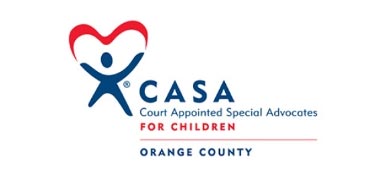
Are older workers facing discrimination based on their age when applying for jobs through Facebook? A proposed class-action lawsuit filed by the Communications Workers of America, a labor union representing over 700,000 workers nationwide, is alleging precisely that, and the potential implications could be much more widespread than initially thought.
The suit, Bradley v. T-Mobile, was initially filed in December 2017 in San Francisco’s federal court. It claims that Facebook’s ad placement tools make it more difficult for older job seekers to find employment, which would be considered a discriminatory practice based on age.
Other companies initially named as defendants include Amazon.com Inc., Cox Media Group Inc., Cox Communications Inc., and T-Mobile. Additional companies were included in the most recent filing, including Ikea, Enterprise Rent-A-Car and the University of Maryland Medical System; these companies allegedly used Facebook’s tools to filter prospective employees by age. This is definitely a big legal no-no.
The amended complaint filed in May 2018 by the CWA claims, “When Facebook’s own algorithm disproportionately directs ads to younger workers at the exclusion of older workers, Facebook and the advertisers who are using Facebook as an agent to send their advertisements are engaging in disparate treatment.” The lawsuit also includes claims under California’s fair employment and unfair competition statutes.
In the Bradley case, the plaintiffs (and by extension the CWA) are asking the court to order these companies, including Facebook itself, to stop posting employment advertisements that filter out older workers. They argue that the practice violates the Age Discrimination in Employment Act of 1967.
CWA conducted an in-depth investigation and found that hundreds of employers and employment agencies are using illegal practices to target employment ads on Facebook to eliminate older workers who fall outside specific age ranges (such as ages 18 to 40, or ages 22 to 45). The result is that these older workers are unable to see the ads or pursuing available job opportunities. The Complaint alleges that this practice constitutes a violation of federal, state, and local laws that bar age discrimination in employment advertising, recruiting, and hiring.
In December 2017, ProPublica and the New York Times reported that dozens of the top employers in the United States, a list including Amazon, Verizon, Goldman Sachs, UPS, and Facebook, use Facebook, Google, and LinkedIn to create recruitment ads specifically designed to target only younger applicants. By creating ads that can only be seen by users within a set age range, an employer can effectively limit the pool of potential applicants to eliminate anyone outside that age range.
Congress passed the Age Discrimination in Employment Act in 1967; the law prohibits employment bias against people over 40 years of age, and further makes it illegal to use age as the sole factor in hiring. However, age alone does not rise to the level of strictly protected classes like race and gender, but age does get more leeway as a consideration, and employers are permitted to take other “reasonable factors” into account.
The Bradley case is not the first time that Facebook has found itself in hot water over the issue of age discrimination. In September 2017, two lawsuits alleging that the social media titan was not an inclusive space for older workers.
Facebook CEO Mark Zuckerberg didn’t do himself any favors when it comes to the company’s treatment of older workers by famously stating: “Young people are just smarter.” Zuckerberg went on to dig a deeper hole, claiming “I want to stress the importance of being young and technical…. Why are most chess masters under 30?… I don’t know… Young people just have simpler lives. We may not own a car. We may not have family.”
While Zuckerberg’s comments alone do not demonstrate discriminatory intent on Facebook’s hiring practices when it comes to age, they certainly won’t help when the company tries to argue about its culture concerning hiring.
Facebook denies that these types of ads constitute a form of age discrimination. Facebook’s VP of Advertising Rob Goldman compared the practice to posting job ads in magazines geared for young audiences, which the courts have ruled not to be a primary form of age discrimination but added the company must also list job postings in media outlets with older audiences or make similar recruitment efforts to older audiences.
Goldman explained, “ What matters is that marketing is broadly based and inclusive, not simply focused on a particular age group. In addition, certain employers want to attract retirees or recruit for jobs with specific age restrictions like the military or airline pilots.”
There is no evidence that the employers named as defendants in the Bradley case posted any such ads for older prospective employees.
The issue of age discrimination against older job seekers is a serious problem that shows no signs of slowing down anytime soon. A 2017 study by economists at Tulane University and the University of California Irvine revealed that applicants near retirement age, and especially women, are far less likely to receive a response from recruiters as compared to younger workers. The study involved sending in 40,000 fake resumes for 135 available jobs and comparing the response rates.
Bradley v. T-Mobile is currently pending in the Federal Court system in San Francisco and will undoubtedly be one of the most closely-watched cases by employers and workers’ rights advocates alike in the coming months.
Disclaimer: This article is intended to provide a general summary of laws in the State of California and should not be construed as a legal opinion nor a complete legal analysis of the subject matter. Noelle Minto is an attorney at NM Law, APC in Tustin, California, a law firm specializing in Trusts & Estates and Business Transactions.
Testimonials
Charities We Support
We dedicate pro bono time, volunteer services, and a percentage of our gross revenue to these organizations. In 2023, we sponsored a refugee family of five to come to the United States and start a new life.
Each year our law firm decides as a group which charities to assist with our time, money, and expertise. Please feel free to click on any of the charities below and make a donation of your own.


















